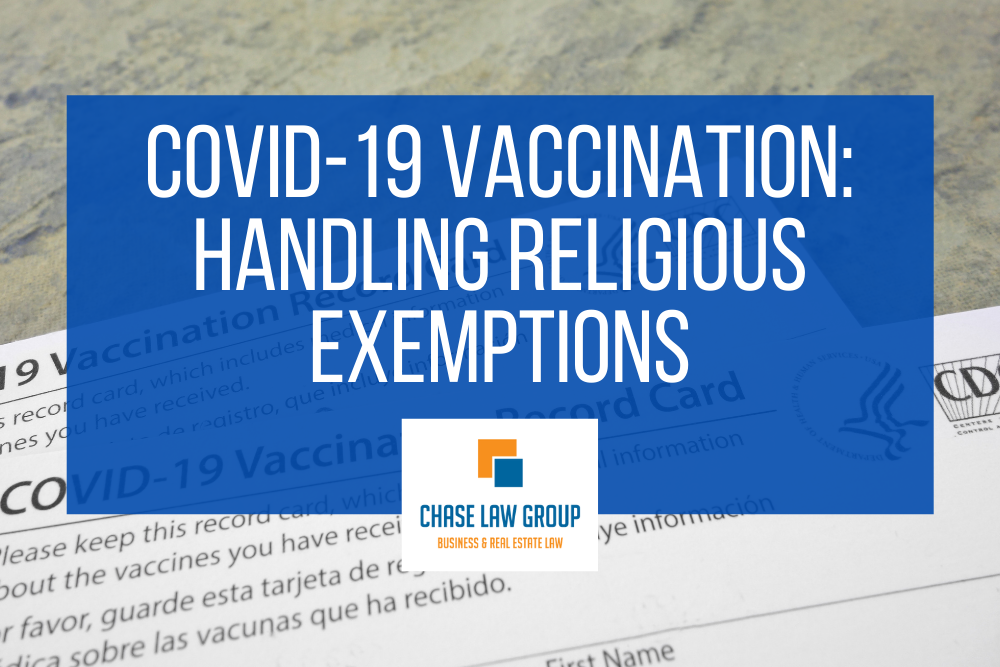Employer Covid-19 Vaccination Mandate: Handling Religious Exemptions
By Admin November 09, 2021 Category: Employment

The EEOC (Equal Employment Opportunity Commission) has provided guidance on handling employee requests for exemptions from the Covid-19 vaccination mandate noting that employees must inform their employer of their request for exemption if there is a conflict between their “sincerely held religious belief” and the employer’s Covid-19 vaccination requirement.
Employers should provide information to employees about the application procedures and who to contact to request religious accommodation.
Employers should assume that such a request is based on a sincerely held religious belief, but if an objective basis is held for questioning the sincerity of the request or belief, employers may be justified in asking a reasonable request for information in making a limited inquiry and request for supporting information. The guidance says that the employee should not assume the employer already understands or knows about the religious nature of their belief and may be asked to explain. This may include asking employees to explain to the employer how their religious beliefs conflict with the employer’s vaccine requirement. If the employee fails to cooperate with the employer concerning an employer’s reasonable request for information to verify the sincerity or religious nature of a professed belief, the employee risks losing a later claim that they were improperly denied an accommodation.
Employers need to be cautious in determining whether an employee’s belief is sincere as it is largely based on individual credibility. The EEOC has specified factors in determining this credibility such as whether the timing of the request is suspect, if the employer has reason to believe the request is not for religious reasons, and/or if the employee’s actions are inconsistent with the professed belief. Not just one factor alone determines sincerity and how the employee may follow the tenants or chooses to observe the practices of their religion should not be used as an assessment of their sincerity.
The EEOC noted that an employer does not need to make a religious accommodation where it would bear more than a minimal cost to the employer based on an assessment (not speculative or possible burdens) of direct monetary costs, any burden on conducting business such as reduced efficiency in other jobs, placing a greater burden or hazard on other coworkers carrying the accommodated employee’s share of work, impaired safety or risk of spreading the virus to others.
When considering a religious accommodation, the employer is not obligated to provide an employee’s preferred accommodation if the employer can provide other possible accommodations that would eliminate the religious conflict. Should the employer deny the accommodation, the employer should explain to the employee and document why their request for accommodation is not being granted.
Both accommodations and beliefs may evolve over time and the employer and employee may discontinue the accommodation necessarily if circumstances have changed and the accommodation posts an undue hardship.

